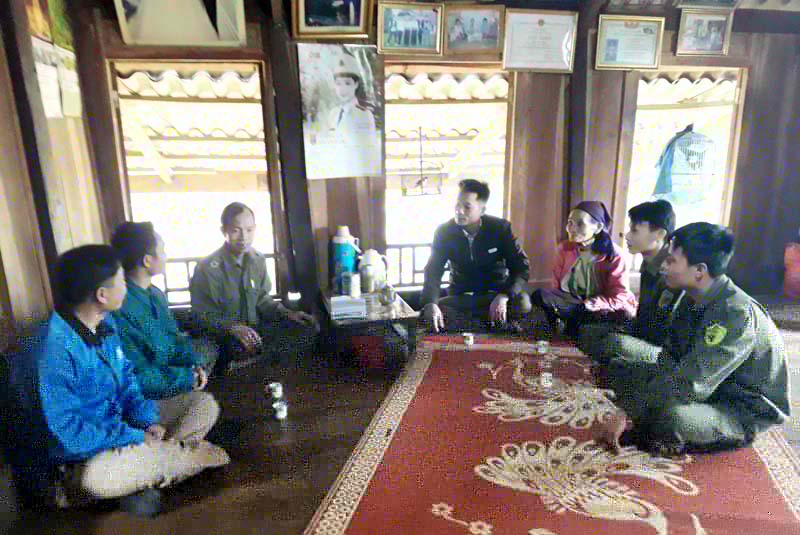


 Police in Bac Son
commune (Tan Lac) learns about security and orders in Hay Duoi hamlet.
Police in Bac Son
commune (Tan Lac) learns about security and orders in Hay Duoi hamlet.
The model was set up in 2016 by Tan Lac district’s Quyet Chien, Bac Son and Phu Cuong communes and Mai Chau’s Thung Khe, Pu Bin and Noong Luong communes.
Lt. Col. Tran Quoc Hoan, deputy head of Tan Lac district’s Police Office, said that following Directive No.09 of the Party Central Committee’s Secretariat on strengthening the Party’s leadership over the "all people join hands to protect national security” movement in the new situation, Police Offices of Tan Lac and Mai Chau districts advised the two districts’ Steering Board 09 to establish a joint security cluster among six bordering communes. The establishment of the cluster plays an important role in ensuring security and order in the area, thus helping intensify solidarity among communes, boost economic development and reduce poverty.
The communes take turn to undertake the position as the head of the cluster with one-year terms. The head of the cluster is responsible for putting forward coordination programmes among communes in the year, organizing quarterly meetings and summarizing monthly security and order reports.
Bac Son is a mountainous commune in Tan Lac district which has remained free from crime for nearly 20 years. The coming into being of the security cluster has motivated local authorities to hold on its achievements.
From the effectiveness of this security cluster, Tan Lac district’s Police Office duplicated the model in several other areas, including a constructive security cluster between Ngoc My commune and its four neighbouring communes of Lac Son district. The office also revised regulations to increase the effectiveness of the Gia Phu security cluster between Tan Lac’s Gia Mo commune and Lac Son district’s Phu Luong commune.
To raise the efficiency of the Mai Chau-Tan Lac joint security cluster, the district police continue following directions of local authorities and revising and supplementing regulations in accordance with the new situation, and intensifying coordination among members of the cluster’s steering board./.